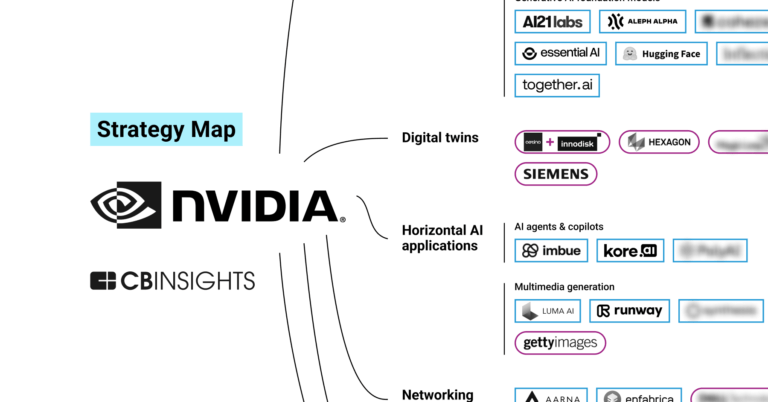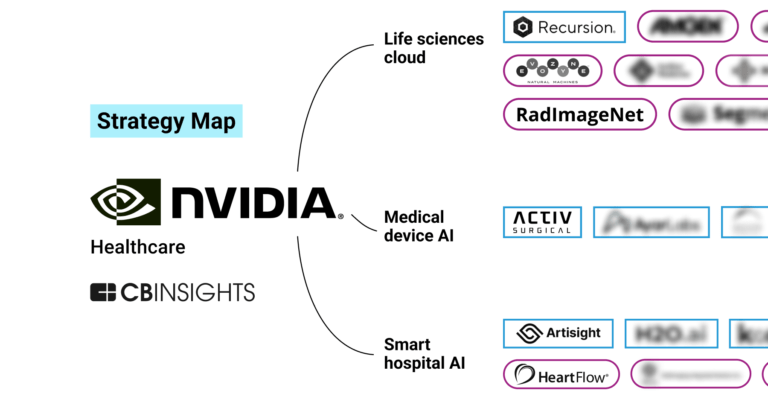
Ayar Labs
Founded Year
2015Stage
Series D | AliveTotal Raised
$374.72MValuation
$0000Last Raised
$155M | 4 mos agoMosaic Score The Mosaic Score is an algorithm that measures the overall financial health and market potential of private companies.
+61 points in the past 30 days
About Ayar Labs
Ayar Labs focuses on optical Input/Output solutions within the technology sector. The company offers products that facilitate data movement and improve compute efficiency for artificial intelligence (AI) systems, while also addressing costs, latency, and power consumption. Ayar Labs primarily serves the AI infrastructure industry and provides solutions for AI training and inference processes. Ayar Labs was formerly known as OptiBit. It was founded in 2015 and is based in San Jose, California.
Loading...
Ayar Labs's Products & Differentiators
Ayar Labs Optical I/O solution
Ayar Labs in-package optical I/O solution combines a TeraPHY™ electro-optical chiplet and a SuperNova™ remote light source, delivering 8 x256G optical ports and achieving up to 2.048 Tbps full-duplex (4.096 Tbps total) throughput
Loading...
Research containing Ayar Labs
Get data-driven expert analysis from the CB Insights Intelligence Unit.
CB Insights Intelligence Analysts have mentioned Ayar Labs in 2 CB Insights research briefs, most recently on Jun 20, 2024.

Expert Collections containing Ayar Labs
Expert Collections are analyst-curated lists that highlight the companies you need to know in the most important technology spaces.
Ayar Labs is included in 4 Expert Collections, including Unicorns- Billion Dollar Startups.
Unicorns- Billion Dollar Startups
1,270 items
Game Changers 2018
36 items
Our selected startups are high-momentum companies pioneering technology with the potential to transform society and economies for the better.
Semiconductors, Chips, and Advanced Electronics
7,321 items
Companies in the semiconductors & HPC space, including integrated device manufacturers (IDMs), fabless firms, semiconductor production equipment manufacturers, electronic design automation (EDA), advanced semiconductor material companies, and more
Artificial Intelligence
7,221 items
Ayar Labs Patents
Ayar Labs has filed 101 patents.
The 3 most popular patent topics include:
- photonics
- fiber optics
- optical devices

Application Date | Grant Date | Title | Related Topics | Status |
|---|---|---|---|---|
1/19/2023 | 2/4/2025 | Optical devices, Photonics, Metamaterials, Fiber optics, Microwave technology | Grant |
Application Date | 1/19/2023 |
|---|---|
Grant Date | 2/4/2025 |
Title | |
Related Topics | Optical devices, Photonics, Metamaterials, Fiber optics, Microwave technology |
Status | Grant |
Latest Ayar Labs News
Mar 24, 2025
Nvidia embraces optical tech – but not for GPUs (yet) The chips will be three and a half times more energy-efficient than their predecessors The big picture: Nvidia's approach to co-packaged optics is a nuanced reflection of the technology's current limitations and future potential. By focusing on specialized applications with less demanding reliability requirements, Nvidia is positioning itself to lead the development of optical technologies for networking and data center applications while continuing to rely on traditional copper connections for its high-performance GPUs. Nvidia CEO Jensen Huang recently addressed the reliability of co-packaged optics, a technology that uses laser light to transmit data between chips, and its potential use in the company's flagship GPUs. During the company's annual developer conference, Huang noted that while co-packaged optics offer superior energy efficiency and speed compared to traditional copper connections, they are not yet reliable enough for widespread use in Nvidia's GPUs. This reliability gap is significant, with copper connections being "orders of magnitude" more reliable than current co-packaged optical connections, making them the preferred choice for Nvidia's GPUs, Huang told a group of journalists after his keynote speech. However, Nvidia is exploring using co-packaged optical technology in more specialized applications. Huang said that the company plans to integrate the technology into two new networking chips designed for switches on top of its servers. These chips, set to be released later this year and in 2026, will be three and a half times more energy-efficient than their predecessors. This marks a significant step forward in advancing the technology, albeit in a more niche application where the reliability requirements might be less stringent than those for high-performance GPUs. Nvidia has also made significant strides in silicon photonics, with the introduction of its Quantum-X and Spectrum-X networking switches last week. These switches integrate optical communications into electronic circuits at a massive scale, enabling AI factories to connect millions of GPUs across sites while reducing energy consumption and operational costs. Nvidia claims these optics innovations use 4x fewer lasers to deliver 3.5x more power efficiency, 63x greater signal integrity, 10x better network resiliency at scale, and 1.3x faster deployment than traditional methods. // Related Stories Huang highlighted the importance of the new networking switches, stating, "AI factories are a new class of data centers with extreme scale, and networking infrastructure must be reinvented to keep pace." By integrating silicon photonics into switches, Nvidia is pushing the boundaries of what is possible in hyperscale and enterprise networks, paving the way for "million-GPU AI factories," the CEO said. The industry's shift towards optical technology is driven by the need to address the increasing power consumption and heat generation associated with traditional copper connections. As AI computing demands grow, companies like Nvidia and startups such as Ayar Labs are exploring ways to make co-packaged optics more reliable and cost-effective. Mark Wade, CEO of Ayar Labs, told Reuters that while transitioning to widespread use of co-packaged optics may not occur until 2028 or beyond, optics is essential for building larger servers without being constrained by copper's limitations. "Just look at the power consumption going up and up on racks with electrical connections," Wade said. "Optics is the only technology that gets you off of that train."
Ayar Labs Frequently Asked Questions (FAQ)
When was Ayar Labs founded?
Ayar Labs was founded in 2015.
Where is Ayar Labs's headquarters?
Ayar Labs's headquarters is located at 695 River Oaks Parkway, San Jose.
What is Ayar Labs's latest funding round?
Ayar Labs's latest funding round is Series D.
How much did Ayar Labs raise?
Ayar Labs raised a total of $374.72M.
Who are the investors of Ayar Labs?
Investors of Ayar Labs include Intel Capital, NVIDIA, Light Street Capital, 3M Ventures, Autopilot Ventures and 38 more.
Who are Ayar Labs's competitors?
Competitors of Ayar Labs include Celestial AI, Salience Labs, Akhetonics, Lightmatter, Thintronics and 7 more.
What products does Ayar Labs offer?
Ayar Labs's products include Ayar Labs Optical I/O solution and 2 more.
Who are Ayar Labs's customers?
Customers of Ayar Labs include Intel/Altera.
Loading...
Compare Ayar Labs to Competitors
Avicena Tech develops optical interconnects for computing and focuses on low-power and high-bandwidth communications. The company's offerings include microLED technology for chip-to-chip communications, which is used in high-performance computing, cloud computing, and other sectors that utilize low-power interconnects. Its technology is applicable in memory disaggregation, sensors, wireless head-ends, automotive, and underwater optical communications. The company was founded in 2019 and is based in Sunnyvale, California.
Ranovus is focused on data center infrastructure through optical interconnect technology within the semiconductor industry. The company offers products including monolithic silicon photonics platforms and Quantum Dot Multi-Wavelength Lasers that can be used in data centers. Ranovus serves sectors that require optical interconnects, such as cloud computing and artificial intelligence (AI)/machine learning (ML) workloads. It was founded in 2012 and is based in Ottawa, Canada.

Cognifiber is a technology company that focuses on the development of pure photonic computing within the data processing industry. The company's main offering is a scalable and robust photonic supercomputing processor that mimics the computational efficiency of the human brain. Cognifiber primarily serves sectors that require data processing, such as smart cities, smart mobility, and the industrial Internet of Things. It was founded in 2019 and is based in Rosh HaAyin, Israel.

Lightmatter is a company that works in silicon photonics within the computing and semiconductor industries. It develops photonic computing solutions aimed at supporting artificial intelligence infrastructure and promoting industry collaboration through standardization efforts. The company's products serve to improve digital data processing and interconnectivity in AI applications. It was founded in 2017 and is based in Mountain View, California.
Teramount provides optical connectivity solutions within the technology and semiconductor industries. The company offers products that integrate optics with silicon photonics, utilizing technologies such as self-aligning optics and the Universal Photonic Coupler. Teramount's solutions focus on fiber-to-chip connectivity in datacom and telecom applications. It was founded in 2013 and is based in Jerusalem, Israel.

SCINTIL Photonics develops silicon photonics technologies that include integrated lasers and optical amplifiers, specifically for optical interconnects in data centers and network infrastructure. The company offers photonic integrated circuits (PICs) that incorporate DFB lasers and optical amplifiers, as well as solutions for pluggable and co-packaged optics. It was founded in 2018 and is based in Grenoble, France.
Loading...

